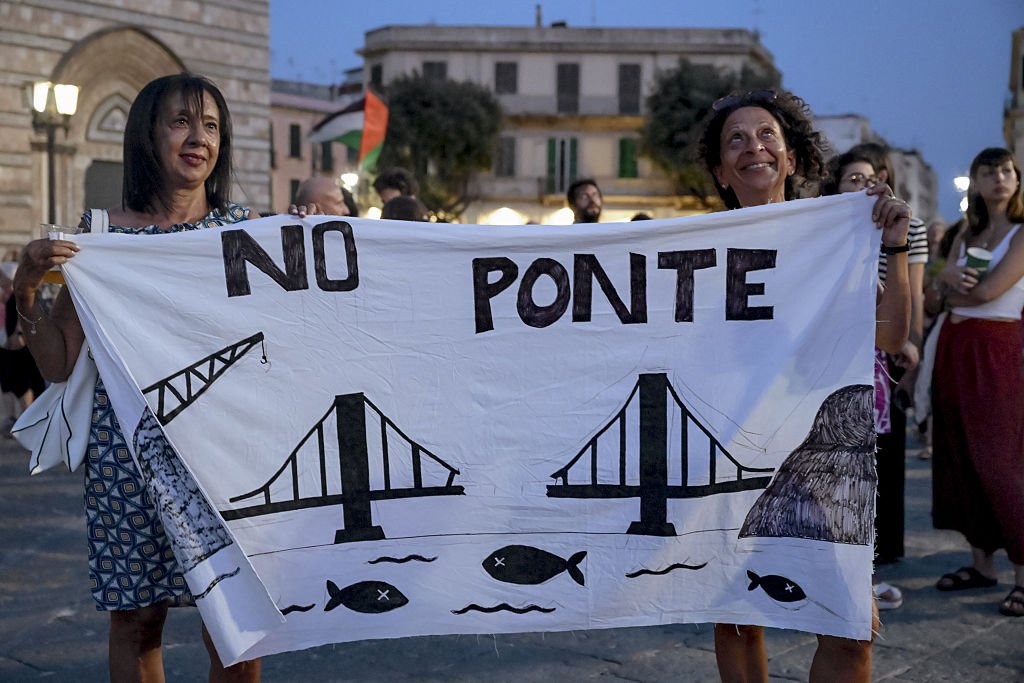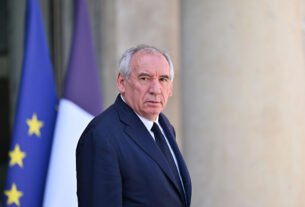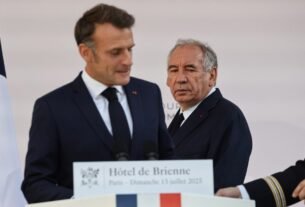Today’s edition is powered by FIGIEFA
Upcoming European Parliament plenary vote on End-of-Life Vehicles Regulation
—————————————————————————————————————
It has been the butt of jokes for generations but for a second it really seemed that the Messina Bridge might become reality. Its fate is still up in the air but the structure is already a monument to unabashed defence-washing.
Of all the vanity projects that have bounced around Italy’s political amphitheatre over the years, this is the most mythical – the road connection that would unlock investment and fire the nation’s notoriously ailing southern economy. To pull it off would put an end to millennia of dreaming and land Italy the accomplishment of completing the world’s longest suspension bridge.
The allure of putting your name to such a venture is self-evident and the excitement that now might be the long-awaited moment was palpable. Transport minister Matteo Salvini touted it as a “fascinating” engineering endeavour that could create 120,000 jobs each year. To dispel any doubt of the span’s strategic importance, Salvini stressed the “dual-use” potential, which could see the bridge carry military personnel and equipment to the largest Mediterranean island.
No matter that Sicily itself has abysmal roads and is far from the focus of NATO concerns. The 5% spending target is first and foremost a number to keep Trump in the alliance. This much was acknowledged by Secretary General Rutte, who made clear that spending for the sake of it mattered more than the substance of that spending.
On Tuesday, the US ambassador to NATO warned against creative accounting that could see members approve projects that really have little to do with security – as if the entire 3.5% plus 1.5% weren’t designed purely to hit the Trump-pleasing 5% objective. The reality is that Italy’s bridge is just the most audacious example of imaginative arithmetic to deliver grand designs under the guise of defence.
Were it not for the historic agreement sealed in The Hague in June, Italy’s dream bridge would have been inconceivable. It’s hardly a socio-economic priority and is shot through with fundamental flaws that can’t just be papered over. Some highlight the geological problems – the Strait of Messina sits in one of Europe’s most seismically active zones. Others point to the maintenance costs, with the 2018 Genova bridge collapse a grim example of Italy’s decrepit infrastructure.
And of course there’s the cost: The bridge would take an estimated €13.8 billion at a time when Italy is still subject to an Excessive Debt Procedure from the ECB. Can this honestly be deemed money well spent?
In an effort to defuse diplomatic tensions with the US, the government has insisted that the bridge is “entirely financed with state resources and no funds are earmarked for defence.”
But the whole affair highlights the spending discrepancies facilitated by the “ambitious” – or rather, ill-conceived – spending targets. Will Italy finally accept this is a bridge too far?
Roundup
Europe braces for MAGA health mayhem – As US health policy becomes increasingly isolationist, Europe is losing input from American experts and researchers. But the greatest danger is a virus called ideology.
Google fined in France – The French privacy watchdog handed Google a €325 million fine for inserting advertising between Gmail users’ emails and dropping tracking cookies without consent.
Trans must be respected in government IDs – EU countries must issue identity documents that reflect the lived gender identity of transgender people, even if they have not transitioned, according to an opinion from the EU’s advocate general.
Across Europe
Flying through the Plovdiv Triangle? – Bulgaria appeared to contradict claims by Ursula von der Leyen’s office that the navigation system on the Commission president’s plane was targeted on Sunday as it approached the city of Plovdiv, adding to the confusion surrounding the flight.
Mistrust over Portugal lithium mine – The Portuguese Environment Agency has rejected a UN finding that it and other authorities denied citizens access to information during consultations on the controversial Barroso lithium mine project.
Power line probe triggers delays in Mediterranean – Cyprus is putting the brakes on a multi-billion-euro power line connecting Greece and Israel via the island state, with the country’s President Nikos Christodoulides revealing late Wednesday that the EU prosecutor has launched an investigation into the project.





